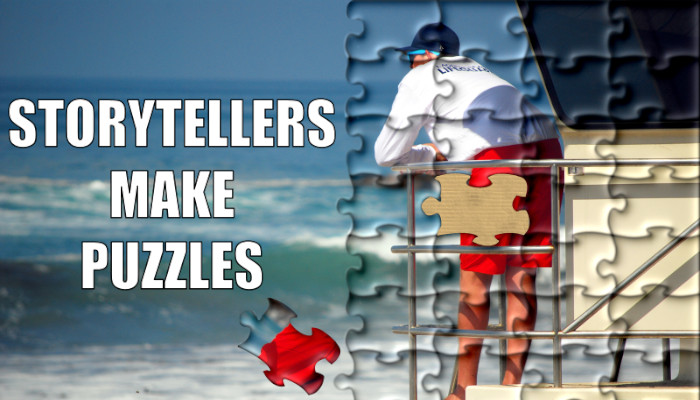
The third in a series on metaphor
Jessica and Rob, cast members of the reality television series Below Deck Mediterranean, are attracted to one another. As they get closer, we learn something that Jessica doesn’t know–that Rob is in an open relationship with his girlfriend back home. When another cast member decides to drop that bombshell into a group conversation, we see Jess’s physical expression change dramatically as she retreats into her thoughts.
Rob notices and asks, “What puzzle are you trying to put together?”
I grabbed the remote control, hit the pause button, and repeated the question out loud. “What puzzle are you trying to put together?” I loved this question because it reveals the storyteller’s role–to create puzzles for their audiences to solve.
Storytelling works because it mimics our never ending cycle of rectifying new knowledge with our prior knowledge. When we see, hear, feel, taste or touch something that defies our understanding, we become fixated and thus mentally paralyzed. Just as Jessica turned inward to rectify her feelings for Rob with this new information, dichotomies force our minds into overdrive–shutting out the rest of the world until we can square up the two competing thoughts.
Good storytellers create puzzles to hold people’s attention. Great storytellers balance the difficulty of solving those puzzles–too easy bores an audience, while too difficult makes them give up.
Which brings us to the focus of this series. If storytellers create puzzles that our brains are programmed to solve, then metaphors are super puzzle pieces that fill the gap between prior knowledge and new knowledge. While “Meghan is a rock” may at first blush seem like a puzzle, it resolves itself quickly as our brains transfer the properties of rocks to define her personality.
If stories are puzzles, metaphors are the super pieces.